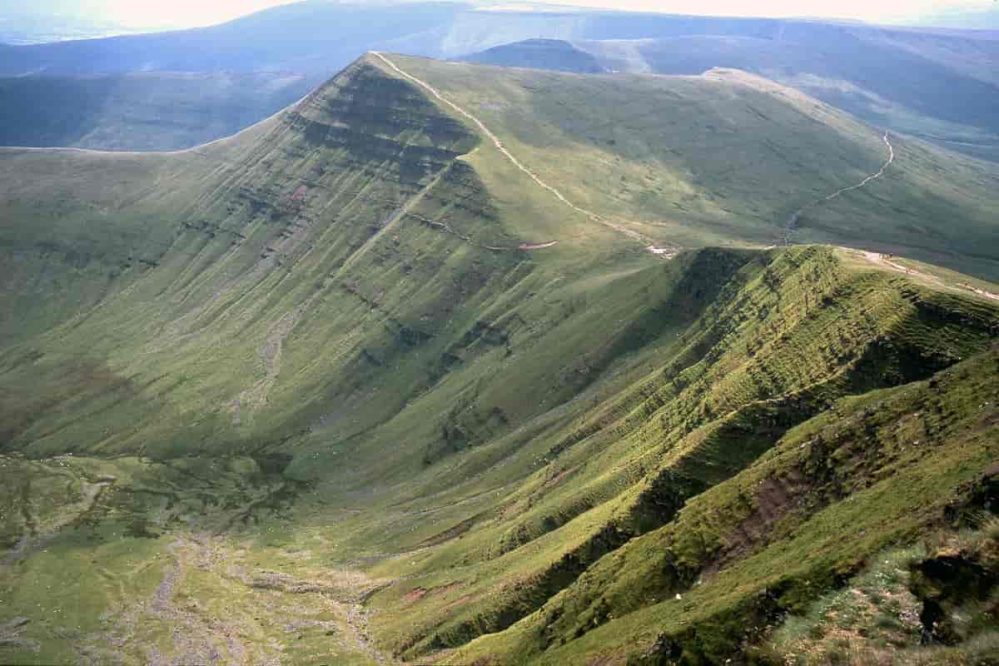Education
Overhaul of Welsh curriculum announced
ASSEMBLY GOVERNMENT Education minister, Huw Lewis, announced this week that his government would be accepting the Donaldson report recommendations in full. Donaldson’s ‘Successful Futures’ proposed radical change in the Welsh curriculum, and after a consultation period with the public and academic bodies, the Welsh Curriculum is now set for a complete overhaul.
Speaking about the changes Mr Lewis said: “Successful Futures provides the foundations for an ambitious, engaging 21st Century curriculum shaped by the very latest international thinking. Together, we now embark on the next stage of the journey. I was heartened by how the people of Wales engaged with the Great Debate that followed the publication of Successful Futures. They understand how crucial this moment is for the future of education in Wales and there is enormous appetite for change. That’s why, after consulting with them, I am accepting Professor Donaldson’s recommendations in full. The teaching profession must now play a central role in delivering the new curriculum. Pioneer Schools will be asked to work closely with a range of partners but they will lead on the design and development of the new curriculum.”
He went on to state that the curriculum that embraces four key purposes, supporting children and young people to be:
- Ambitious, capable learners ready to learn throughout their lives;
- Enterprising, creative contributors, ready to play a full part in life and work;
- Ethical, informed citizens of Wales and the world; and
- Healthy, confident individuals, ready to lead fulfilling lives as valued members of society.
He was keen to express what these changes would mean to the profession, saying: “I appreciate we are asking much of our teachers, lecturers, leaders and support staff. But I know the commitment exists within the workforce to deliver the very best for our young people and we will support them on this challenging, exciting journey. Our New Deal for the Education Workforce provides teachers with the opportunity to access high quality professional learning at every stage of their career. It has been developed with the requirements of the new curriculum in mind so it enables us to prepare the workforce for the changes that lie ahead. It’s crucial too, that we ensure new teachers are fully equipped to deliver the new curriculum. Professor Furlong’s report clearly and convincingly articulated the implications of the new curriculum on initial teacher training and I’m delighted he has agreed to support Professor Donaldson on the Independent Advisory Group.”
The Minister finished by saying: “Change on this scale is too important to rush but the process will evolve with purpose and momentum. We have a clear blueprint but I am not setting a timetable for implementation. We will take views from the Independent Advisory Group and others, as part of our continuing Great Debate and I will report back in the autumn.”
Commenting on his report’s acceptance, Professor Donaldson said: “I’m delighted the Minister plans to take forward the recommendations of Successful Futures but it is only one stage in a very long and important process. What we’ve done is to make clear what our aspirations are and set some sign posts for how we should move forward. The critical thing is to turn those aspirations into reality and that depends on everyone across Wales engaging in that process. We need to ensure the way in which the review was conducted, with a strong sense of inclusion and ownership of the direction we want to go in, is maintained.”
However, Welsh Conservative Shadow Education Minister, Angela Burns AM, added a note of caution, stating: “An overhaul of Welsh education is long overdue – but significant questions remain over its implementation.Those reforms will inevitably mean increased workloads for teachers. Given the amount of hours lost to stress-related illness, it’s absolutely crucial that appropriately training and re-skilling staff is top of the agenda. Labour has held the reins of Welsh education for 16 years – and standards have fallen dramatically. There are too many young people beginning secondary school unable to read and write properly – and too few who are sufficiently literate and numerate when they leave full-time education. I now hope to work with the minister on a system of implementation that keeps disruption to both pupils and staff to a minimum.”
Plaid Cymru’s Mid and West AM Simon Thomas said of the radical overhaul: “Plaid Cymru welcomed Donaldson’s recommendations for a more agile and flexible curriculum that sets out objectives rather than overly-prescribing content. While welcoming that the Minister has accepted Donaldson’s review in full it is disappointing that this was announced on the BBC rather than to Assembly Members in the Senedd. The Party of Wales has called for a simple and understandable curriculum that allows teachers to deliver the objectives set out by the government. We have called for more freedom for teachers to be flexible and to challenge pupils in the classroom. A less prescriptive curriculum allows teachers more freedom and gives them more responsibility. We therefore need to build the capacity of the education workforce. It is hoped that, following recent recommendations on teacher training, the Welsh Government will professionalise the education workforce and trust the education professionals to improve education standards.”
The Shadow Education Minister, was keen to extol the virtues of a skills-based curriculum, adding: “Schools need to enable young people to develop the skills they need in a competitive global economy and also the skills they need for life. We have long called for digital literacy to be given equal status to literacy and numeracy and for pupils to learn how to create as well as use technology. We welcome the recognition that young people need to be equipped to become lifelong learners and that, as well as being well-qualified when they leave school. They should have an understanding of citizenship, wellbeing and health. We have called for citizenship to be taught in schools; for the development of pupils’ social and emotional skills; and for ensuring that all pupils receive good-quality physical education that is relevant to their needs and interests.”
Education
Senedd shoots down outdoor education bill

MEMBERS of the Senedd rejected calls to establish a legal requirement for residential outdoor education opportunities for children and young people in Wales’ schools.
The Senedd narrowly voted against the general principles of the residential outdoor education bill, which was introduced by the Conservatives’ Sam Rowlands.
Mr Rowlands said his bill would remove a postcode lottery in terms of access to residential outdoor education, so no child misses out due to their personal circumstances.
He explained that the bill would create an entitlement for all pupils in maintained schools to experience at least four nights of residential outdoor education free of charge.
The North Wales MS argued the bill would have a long-term net positive economic impact.
He warned: “Outdoor education residentials are valued by children, parents and teachers alike, yet, for those without the means to access them, they are, in fact, unattainable.
“I believe this is fundamentally wrong and this bill sets out to remove those financial barriers to participating in what can be life-changing experiences.”
Mr Rowlands, a former Conwy council leader, said the bill would support the long-term physical and mental health of young people.
Labour’s Buffy Williams outlined the education committee’s stage-one report on the bill, which raised concerns about some children and young people being excluded.
The newly elected committee chair pointed to the example of education other than at school, such as pupil referral units or those who are homeschooled.
Peredur Owen Griffiths, who chairs the finance committee, said the bill would require significant funding against a backdrop of Welsh Government budgetary pressures.
An impact assessment found the bill would cost between £74m and £96m over five years.
Sarah Murphy, the Labour MS for Bridgend, raised the legislation committee’s concerns about the lack of a definition of residential outdoor education in the bill.
Ms Murphy, who was elected chair in a knife-edge 28-29 vote on Tuesday, warned that the bill does not provide an appropriate mechanism for pupils to opt out.
Peter Fox said Monmouthshire council prioritised access to outdoor education while neighbouring councils withdrew support to make efficiency savings.
The former council leader said: “We rationalised our provision and maintained the offer, as we had seen the benefits of children for decades.”
Mr Fox told the chamber it is a sad indictment that the Senedd does not enable backbench legislation to progress, with no opposition bills agreed since 2016.
The Monmouth MS said: “Why don’t we allow these things to progress and see where they go? And if you can’t find a way through that, then things can be stopped in the future.
“Why always stop legislation before it has an opportunity to progress, to breathe and to really show what it has the potential to do?”
Heledd Fychan, Plaid Cymru’s shadow education secretary, backed the bill’s core aim of ensuring equal opportunity for every child.
However, she highlighted the huge pressures already on school staff who often volunteer to help with residential outdoor education.
“They don’t receive any additional payment for this work,” she said. “They do it because they see the benefit for the children and young people in their care when they are in our schools.”
Carolyn Thomas, the Labour MS for North Wales, raised existing school budget pressures, with the bill estimated to cost about £20m a year to cover teachers, lodging and transport.
She said: “At a time when schools are having to face extremely difficult decisions, including redundancies, placing additional pressure on the education budget would be unthinkable.”
Lynne Neagle raised concerns about the capacity of the outdoor education sector to meet the bill’s requirements on the Welsh language and additional learning needs provision.
Wales’ new education secretary warned the bill would require additional changes to terms and conditions of school staff, which could hamper recruitment and retention.
Ms Neagle said education unions and councils have significant concerns about the potential impact on an already stretched financial situation facing schools.
She told the chamber the bill would bind the Welsh Government to expressly fund residential outdoor education over and above any other aspect of Wales’ new curriculum.
The Senedd voted 25-26 against the bill following the debate on April 17, with opposition members outnumbered by the Welsh Government and Labour backbenchers.
Education
Pupils take centre stage for dance competitions

MORE than 230 Pembrokeshire pupils have taken part in exciting dance competitions at primary and secondary school levels.
Sport Pembrokeshire hosted the primary school dance competition on March 19th at Fishguard Leisure Centre.
Seven schools from across the county and more than 160 pupils took part, including both boys and girls from school years 3-6.
All style and street dance were the categories that teams, solos and duos could enter. There were 55 solo performers entering the street dance solo category.
Pupils from Ysgol Bro Gwaun performed a group dance and some performed brilliant solos for the primary pupils to watch.
Finola (FF Dancers), Kelly (Kelly Williams School of Dance) and Lowri (Lowri Jones School of Dance) judged the high standard of competitions with dance coaches Lucy Kerrison and Kelci Francis helping out during the day.
They are all thanked for their help and expertise as putting on an event of this nature would not be possible without their valuable input.
Forty eight medals, 22 trophies and numerous certificates were presented, including awards for stand-out performers.
The atmosphere was great and it was brilliant to see the pupils taking part, getting creative and showcasing their skills, all with a smile on their faces.
The secondary schools dance competition was hosted on Thursday, 29th February at Haverfordwest Leisure Centre.
In total 77 girls from school years 7-11 competed in various categories such as teams, duos and solos. These included street, all style, freestyle, jazz and cheer.
Finola and Kelly judged the day with the help from Lucy and Kelci. Kelci, a former Ysgol Harri Tudur pupil, also gave showstopping performances.
It was a great day with a fantastic atmosphere and very rewarding to see so many girls taking part in sport and enjoying every minute.
Some of the schools who attended are now through to the UDOIT Dance Competition in Cardiff.
Hundreds of pupils have enjoyed school dance competitions over recent weeks.
Education
Second Pembrokeshire Chess Tournament celebrates youth and skill

THE SECOND Pembrokeshire Chess Tournament drew participants from 21 schools across the region, culminating in a day of intense competition and camaraderie.
The tournament, reported by Vicky Brown, saw young chess enthusiasts gather for a day marked by strategic gameplay and exceptional talent. Henry Burton from Redhill emerged victorious, claiming the top spot in a closely contested field. The duo of Steffan Hughes and Huw Holliday, also from Redhill, followed closely in second place, while Osian Griffiths (Ysgol Caer Elen), Bryn Williams (Milford Haven Community School), and Iolo Hughes (Redhill) shared the third place, showcasing the depth of talent present among the participants.
In recognition of outstanding sportsmanship, Carys Callan from Redhill was honoured with the ‘David Pinch Award’, embodying the spirit of fair play and respect that marked the tournament. A special mention was given to Tyler Davison-Hall from Johnston CP School for participating in the Game of the Tournament, further highlighting the event’s competitive yet friendly atmosphere.
The tournament benefitted significantly from the expertise of Ian Eustis from the Welsh Chess Union, who served as Arbiter, ensuring the smooth running of the games. The event was also supported by Martin Jones and Scott Hammett, who took on the roles of stewards, and the Friends of Redhill (FOR), who managed the refreshments, contributing to the day’s success.
The local chess community, including participants and spectators, expressed their appreciation for the organisational efforts that made the event possible. For those interested in furthering their chess skills, the Pembrokeshire Chess Club extends an invitation to meet on Tuesday evenings in Steynton. Martin Jones, contactable at 07884384131, is available for further details regarding membership and participation.
Looking ahead, Redhill is poised to host its next chess tournament on Saturday, 8th June, promising another opportunity for young chess players to demonstrate their skills and passion for the game. The success of this event not only highlights the thriving chess scene in Pembrokeshire but also sets the stage for future tournaments that continue to inspire and engage the youth in the noble game of chess.

-

 Business3 days ago
Business3 days agoBluestone National Park Resort payments expected to end
-

 Community5 days ago
Community5 days agoThe Harbourmaster: Special rail excursion draws crowds to Milford Haven
-

 News4 days ago
News4 days agoDragon LNG ‘monitoring’ scrap car blaze in Waterston
-

 News5 days ago
News5 days agoSearch for Luke, 19, reported missing in the Pembroke Dock area, continuing
-

 News2 days ago
News2 days agoSearch for missing teenager Luke continues at Pembroke Dock
-

 Crime3 days ago
Crime3 days agoEstate agents admit health and safety failings following fatal market incident
-

 News6 days ago
News6 days agoMajor search in the area of The Cleddau Bridge and Hobbs Point
-

 News2 days ago
News2 days agoMan jailed after scarring police officer in Narberth altercation
























